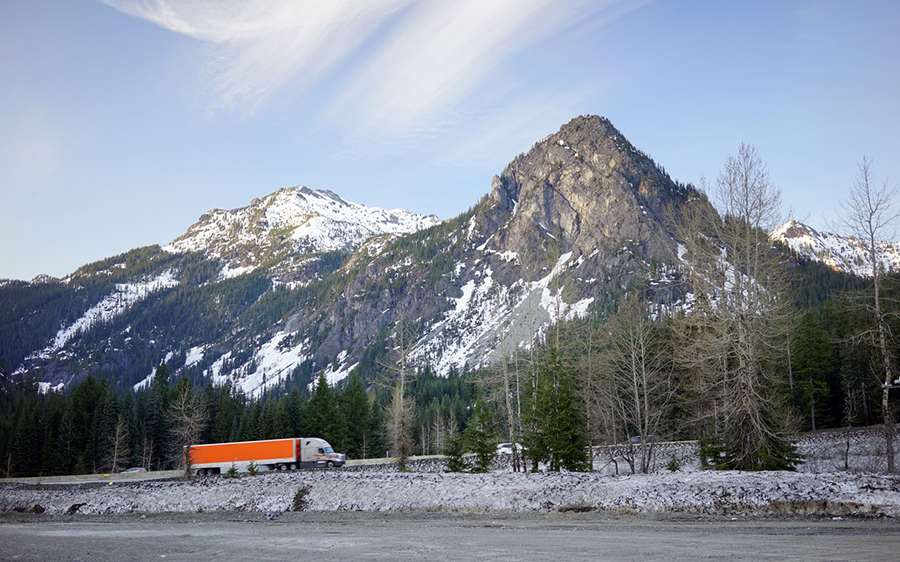How to watch your waste this winter driving season
Tips to keep yourself and our region’s environment safe on your winter car adventures

The wear and tear of a winter driving season means it’s important in colder months to stay aware of the oils and fluids your car needs to function. These fluids contain chemicals that can be hazardous to people and the environment if not handled or disposed properly.
The weather outside may be frightful, but handling and getting rid of automotive fluids doesn’t have to be scary. Get to know some risks behind antifreeze, motor oil, and other common car fluids and how to safely dispose of them. Along the way, learn some tips you can rely on to avoid hazardous exposures and stay safe throughout any wintry driving you may encounter.
And just as fluids keep your car’s engine revving, proper disposal of automotive fluids and oils promotes a healthier ecosystem across King County year-round.
Know your fluids and oils
Winter’s arrival in Western Washington means the return of skiing, snowshoeing, and holiday road trips. Before you head out for your adventure, it’s important to be aware of the fluids and oils that keep your car safely cruising down the highway – and what to do with them as you maintain your car.
Antifreeze
Antifreeze is an engine coolant that helps regulate temperatures in your car’s engine and radiator, especially during very cold or hot temperatures. Antifreeze consists of tiny particles that also help prevent your engine from corroding. While it’s good for your car, most antifreeze solutions are toxic to humans and animals. They may be disposed of at a King County hazardous waste collection site.
Never mix antifreeze with other liquids or chemicals, and never dispose of used antifreeze outside, down storm drains, sewers, septic tanks, or dry wells.
Automotive fluids
Automotive fluids and oils include brake fluid, hydraulic fluid, power steering fluid, transmission fluid, and gear oil. Car mechanics can usually check and dispose automotive fluids and oils safely, and you can also bring these automotive fluids to a hazardous waste collection site for free.
Never mix automotive fluids with used motor oil.
Motor oil
All cars need motor oil to function. Over time, impurities like dirt, metal scrapings, water, and chemicals get mixed in with the oil, making it less effective and increasing the need to replace it. Used motor oil can be collected and brought to a hazardous waste collection site.
Need to dispose of antifreeze, automotive fluids, or used motor oil? All Hazardous Waste Management Program hazardous waste collection sites accept used motor oil, as well as automotive fluids and antifreeze. Visit our product library to learn about each fluid's quantity limits and the containers you’ll need to use for drop off at a disposal site.
Before you hit the road
Knowing your fluids and oils is half the battle. To make your winter driving season even safer, consider these other tips to help you hit the road without worry – or waste.
- Check on your vehicle
Make sure your tires are properly inflated and have plenty of tread. Try to always keep at least half a tank of fuel in your vehicle to avoid a gas line freeze.
Check your fluid levels and confirm your car doesn’t have any leaks. Leaking automotive fluids and oils will contaminate the ground, air, and waterways and are hazardous to plants, wildlife, and humans.
- Leverage your trunk for safety support
Worried about ice? Throw a bag of sand in the trunk! Using sand for traction is an environmentally friendly alternative to salt, which can damage plants, contaminate groundwater, and pose a hazard to children and pets. If you need to use salt on your driveway or sidewalk, try not to use more than necessary, and only salt in icy conditions. A trunk is also a great place to stash a car emergency kit for you and your family.
At your destination
Your car may be far away in a parking lot. But, if you’re hitting the slopes or walking through a winter wonderland, you can reduce waste by using reusable containers for water and snacks. Make sure you pack out all your trash, too.
Do your part to drive and winter recreate safely and keep our region’s mountains beautiful and majestic, all while protecting yourself, reducing hazardous waste exposure risk, and having fun!
 Translate
Translate